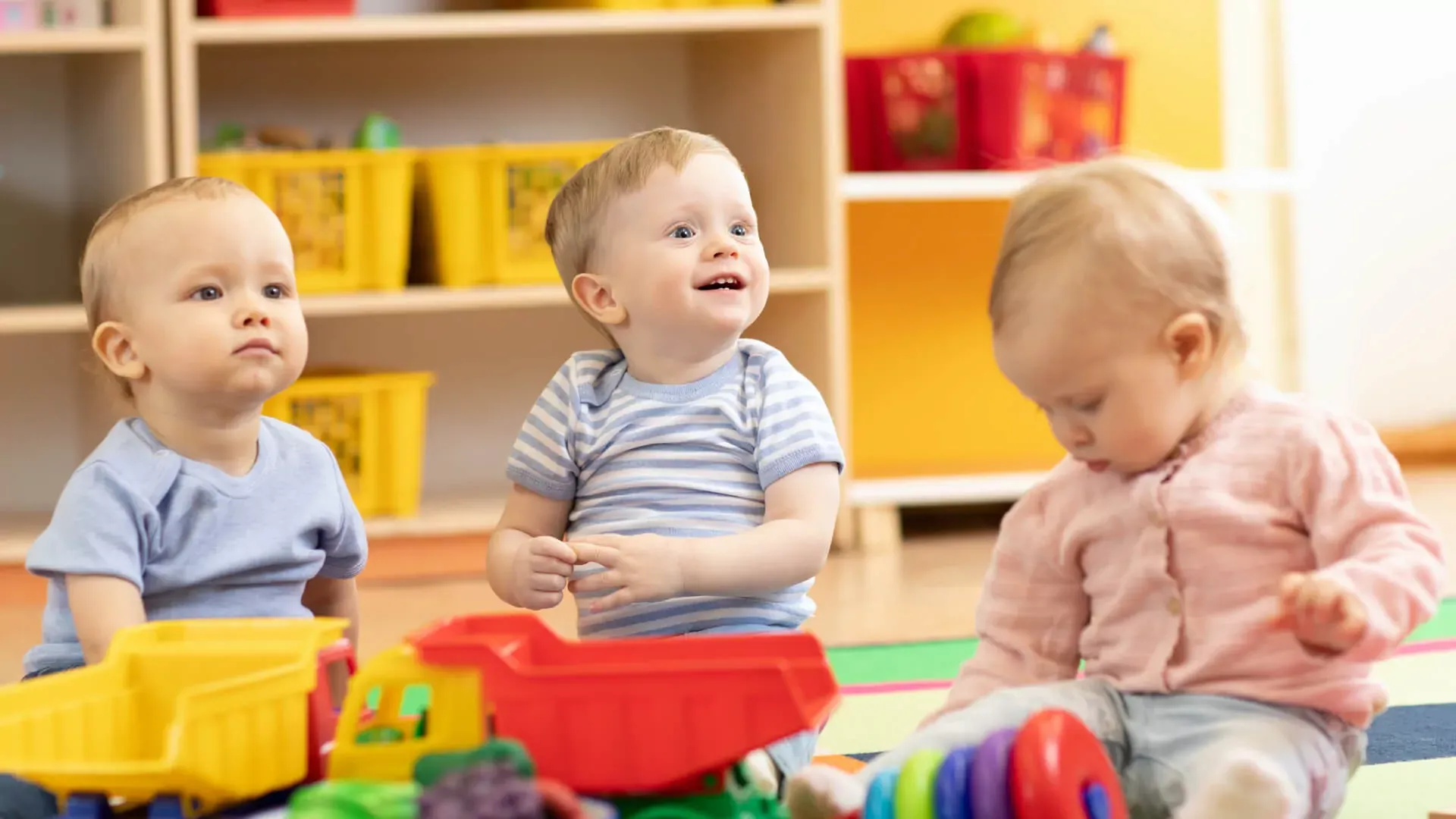Developmental Regression in Toddlers - What Can I Do?
As a parent, it is extremely frustrating to see your child stop progressing in their social, physical, speech, and language development. Normally, when a child’s speech and language regresses it is a sign of Autism. While a developmental regression is alarming, there are causes to a regression that are not related to a diagnosis of Autism.
Let’s take a look at common regression situations, causes, and when to seek further evaluation for Autism screening.
What is Developmental Regression?
A developmental regression is a loss of skills your child once had. For toddlers, this means a regression in the areas of potty-training, social, physical, and speech development. Many toddlers go through periods of regression.
However, the regression period is normally short-lived and is not a cause for alarm.
But this does not stop a loving parent like yourself from worrying about your child’s future development.
To help you understand what a developmental regression looks like, here are some common regression examples in toddlers:
- A fully potty-trained toddler may begin having accidents during the daytime again;
- A walking toddler will start crawling around the house;
- A toddler who sleeps through the night now cannot sleep without you next to him;
- A talking toddler now reverts to using nonsense words and babbling;
- A toddler who once was not shy now does not speak around other children;
- Instead of using words, a toddler is now communicating through pointing at things to show their needs and wants.
Do you feel like your child speech is regressing?
Take this free cutting-edge 3-minute quiz. You will find out if your child is on track with his milestones and receive a free personalized report.
Causes of a Regression
A developmental regression is very frustrating. Sure, you don’t want your child to grow up too fast, but you also don’t want them to lose developmental milestones.
When a toddler starts to regress, ask yourself if your child has been going through some major life changes lately. Many causes of a developmental regression are due to life changes or even the development of other milestones.
Here are three common reasons behind a developmental regression:
1. Learning to master a new milestone
Learning a new developmental milestone is the most common cause of a toddler’s regression. Since it is so common, you don’t need to be alarmed if a regression occurs for this reason.
A child is simply focusing on another major life skill.
Ask yourself the following question: What new skill is my child trying to master now?
A child who is learning to use the potty may begin to regress in speech development. For example, your child went from learning new words each day to using nonsense words when he/she started potty-training.
Thankfully, many children will begin to progress again once the new skill is mastered.
2. Encountered a major life change
Developmental regression occurs when a child experiences a major change in life. This cause of regression is more cause for concern because your toddler is experiencing some type of stress or fear related to the major life change.
While life changes need to occur, it can be overwhelming and stressful for children. That stress leads to a fear associated with a new event.
Here are common life changes that cause regression in toddlers:
- Moving into a new home;
- Welcoming a sibling;
- Starting/switching preschool;
- A new caregiver/nanny/babysitter.
These life event changes may not only create stress, but that stress may manifest into anxiety. For a toddler, a simple way to deal with that anxiety is by going back to a “baby-like” state.
As with learning a new milestone, this cause of regression should resolve itself over time. However, it’s important to try and limit the amount of anxiety your toddler feels when it comes to fear and the new life event.

For a toddler, a simple way to deal with that anxiety is by going back to a “baby-like” state.
For instance, if you just introduced a new sibling into the family make sure to spend one-on-one quality time with your toddler to ensure him/her of your love. Try reading together, playing a game, or having a dance party or two. Do whatever is enjoyable for your toddler and shows the love and attention you still have for him/her.
3. Autism Spectrum Disorder
This is seen as the main cause for concern when seeing a developmental regression. Many children develop normally the first year without any typical signs of Autism. But once a toddler reaches 2-years-old, parents begin to recognize signs of Autism in their child.
If the above two causes don’t explain why your toddler suddenly regressed, then the possibility of Autism needs to be examined.
However, signs of regression when related to Autism look differently than a typical regression caused by an event/change or learning a new skill.
In addition, developmental regression in children with Autism is also recognized by the following symptoms:
- Repetitive word use,
- Repeating phrases,
- Trouble communicating with both verbally and nonverbally,
- Speech and language regression,
- Lack of social interest and interaction.
If your toddler is exhibiting any of the above signs related to developmental regression, talk to your child’s pediatrician. It is best to speak up about developmental concerns as early as possible to start receiving intervention services.
What Toddler Regression Looks Like
I first began to have concerns with my son’s development around the age of two. But since he turned 3, he has completely regressed developmentally.
Over the course of six months, my 3-year-old has gone from speaking three to four sentences, asking why questions and learning new words to almost NO communication. He is still speaking, but I cannot understand anything he says!
On top of the speech and language regression, his preschool teacher voiced her concerns to me additionally about being overly sensitive to loud noises, playing by himself, repetitive play, no talking, and not interacting with other children.
He’s only using nonsense words of the same syllables on repeat. Not only is his speech regressing nonverbal cues like pointing at objects is few and far between. For instance, he cannot tell me what he wants and will not point at an object even if I ask him to. This leads to a full-blown meltdown with screaming and crying if I still cannot figure out his needs.
It’s become extremely frustrating! My husband and I are now seeing other signs of Autism that we never noticed before (even though he’s had those signs a while).
On one hand, I am grateful for my toddler’s speech regression because without it I never would have been able to recognize the other signs he’s displaying of Autism. But I am also completely heartbroken!
Not because he might have Autism, but because he’s struggling so much to communicate simple needs and wants.
Now that we recognize the signs of Autism in our son, we are moving forward with occupational and speech therapy appointments to start the evaluation process.

Toddler not saying words he used to
While a developmental regression is frustrating, there’s hope! Most often the cause of regression is simply a life event putting stress and anxiety on a toddler. Another cause can be your toddler is learning to master a new set of important life skills.
But in some cases of regression, there are signs pointing to the possibility of Autism. I know because my own son falls into this category.
Many times, there is a simple reason behind a developmental regression and therefore the regression will get better with time. However, if the developmental regression continues with no signs of getting better and you see other signs of Autism in your child, contact a pediatrician or a speech therapist immediately! Early intervention is necessary to help children and adolescents out of a developmental regression and help them in progressing forward developmentally.
 By Liz Talton
By Liz Talton